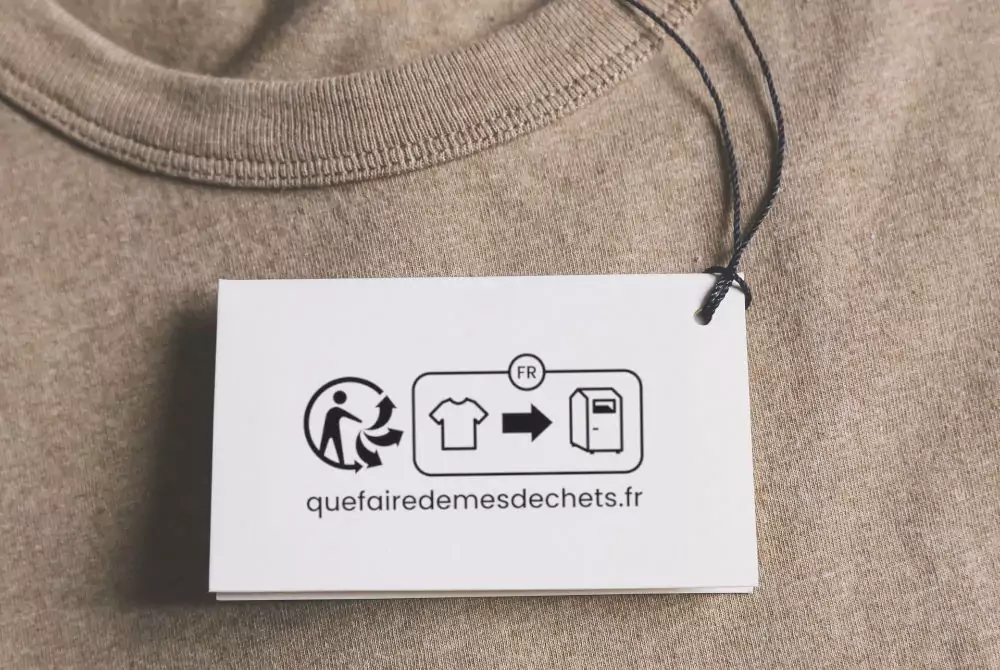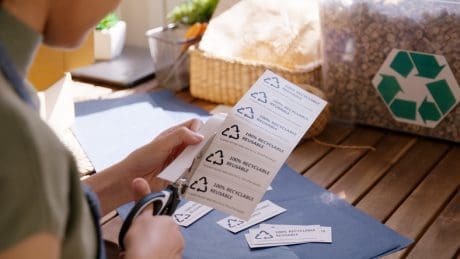
Sustainability In Apparel: France’s Triman Logo

Addressing The Apparel Industry’s Environmental Impact:
France is known for its stringent environmental regulations and the labeling of consumer products is no exception.
The apparel industry is among the largest consumers of resources and producers of waste in the world. Environmental labeling requirements have become increasingly important as consumers become more aware of the environmental impact of the products they buy. In order to reduce the environmental impact of these industries, over the last several years, environmental labeling legislation in France has taken center stage in the European Union, with their creation of new labeling requirements for the recycling and disposal of consumer products, including their Triman Logo.
In France, Law No. 2020-105 introduced wide-ranging measures aimed at eliminating waste, encouraging reuse, and recycling and improving consumer information on the environmental attributes of products and their packaging.
France’s Triman Logo: A Symbol Of Sustainability:
Article 17 of the AGEC Law states that all household products, including cosmetic products, must bear France’s Triman logo and sorting instructions (Info-Tri) for each packaging element.
France created the Triman logo to harmonize the information between consumers and the different collection systems, but this symbol has not been harmonized on a European level.
The Triman logo is an important tool for companies in these industries to demonstrate their commitment to reducing their environmental impact and to help consumers make informed choices about the products they buy.
To date, France’s Anti‑Waste and Circular Economy Law has identified 22 specific products requiring or that will be required to carry specific recycling requirements for manufacturers and importers of waste‑generating products to notify French consumers of the recycling characteristics.
This is supposed to help the French consumers sort their waste properly. Each system or sector will have an identified industry Producer Responsibility Organization (PRO) or eco-organization to help develop the specific signage and methods for recycling each specific product.
The products will be phased in until 2025.

Redefining Responsibility:
Additionally, France has recently passed Decree 2022-748, published on April 29, 2022, which also relates to the environmental labeling of waste-generating products.
This decree affects all producers, importers, and dealers, as well as all other marketers of waste-generating products that are intended for consumers. These include those using an online distribution channel (website, platform, etc.)
The decree came into effect on May 1, 2022. Environmental labeling requirements will come into force mostly depending on the size of a company.
The decree requires importers and producers to provide information on the following specific environmental qualities and characteristics of their products and/or packaging regarding
- Reparability
- Sustainability
- Re-use possibilities
- Incorporation of recycled material
- Use of renewable resources
- Compostability
- Recyclability
- The presence of hazardous substances, precious metals or rare earth
- Traceability
- The presence of plastic microfibers
Products affected include textiles, clothing, footwear, electronic equipment, furnishings and passenger vehicles. As can be seen, there is a crossover with many of the TRIMAN mark product scopes.
Unlocking Market Access:
Accelerate your ability to achieve, maintain & expand market access for all products in global markets with C2P – Your key to unlocking market access, trusted by more than 300 of the world’s leading brands.
C2P is an enterprise SaaS platform providing everything you need in one place to achieve your business objectives by proving compliance in over 195 countries.
- Accelerate time-to-market for products
- Reduce non-compliance risks that impact your ability to meet business goals and cause reputational damage
- Enable business continuity by digitizing your compliance process and building corporate memory
- Improve efficiency and enable your team to focus on business critical initiatives rather than manual tasks
- Save time with access to Compliance & Risks’ extensive Knowledge Partner network
Never Miss A Regulatory Update
Join 50,000 compliance professionals for monthly updates on hot compliance issues, free regulatory webinars and whitepapers and market insights on the latest trends



